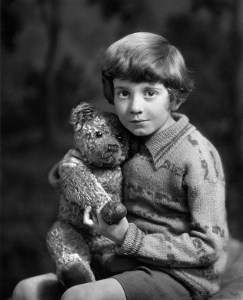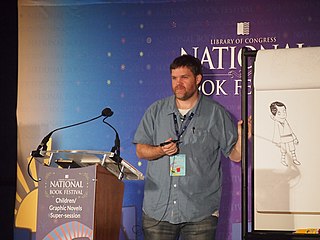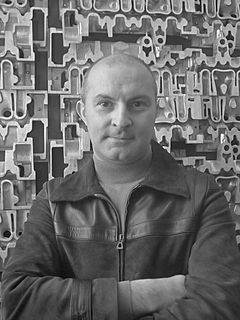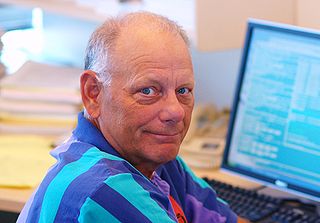Цитата Кристофера Робина Милна
Никогда нельзя быть уверенным, является ли очень раннее воспоминание реальным воспоминанием или просто воспоминанием о том, что, как вам сказали, произошло.
Связанные цитаты
Свет памяти или, вернее, тот свет, который память придает вещам, — самый бледный свет из всех. Я не вполне уверен, сплю ли я или вспоминаю, прожил ли я свою жизнь или видел ее во сне. Как и во сне, память заставляет меня глубоко осознать нереальность, мимолетность мира, мимолетный образ в движущейся воде.
Как писатель, я копался в своей истории, своей семье и своей памяти, но очень специфическим образом. Сочиняя художественную литературу, я никогда не использовал переживания сразу же, как только они происходили. Мне нужно было позволить вещам гноиться в моей памяти, созреть и превратиться во что-то значимое.
Точно так же и с Памятью; ничто из того, что она приносит нам, не является полным. Она своенравный ребенок; все ее игрушки сломаны. Я помню, как упал в огромную пыльную яму, когда был очень маленьким мальчиком, но я не помню ни малейшего воспоминания о том, чтобы когда-нибудь выбраться оттуда снова; и если бы память была всем, на что мы должны полагаться, я был бы вынужден поверить, что я все еще здесь.
Память странная. С научной точки зрения это не механическое средство повторения чего-либо. Я могу тысячу раз думать о том, как я сломал ногу в возрасте десяти лет, но это никогда не приходит на ум, когда я думаю об этом. Мое воспоминание об этом событии в действительности никогда не было ничем иным, как воспоминанием о моем последнем воспоминании об этом событии. Вот почему я использую образ палимпсеста — чего-то написанного поверх чего-то частично стертого — вот что такое для меня память. Это не тот фильм, который вы воспроизводите точно так же. Это похоже на театр, где персонажи появляются время от времени.
Помню, часто кажется, что что-то уже было раньше. Оно подходит к вам совсем близко и стоит там, и вы знаете, что когда-то оно было именно таким, именно таким; на мгновение вы почти знаете, как это должно продолжаться, но затем оно исчезает, когда вы пытаетесь ухватиться за него, как дым или мертвое воспоминание. — Мы никогда не могли вспомнить, Изабель, — говорю я. «Это похоже на дождь. Он тоже стал единым из двух газов, кислорода и водорода, которые больше не помнят, что когда-то были газами. Теперь они всего лишь дождь и не помнят прежнего времени.
Время не существует. Его не существует ни в коем случае. Это больше субъективно, чем реально. Время не существует. Я верю в память. Память – это настоящее вдохновение. Память создает время. Память — это чистая сила. Чистая мощь и чистая сила, и чистое использование пространства и времени (если время — это то, что мы действительно можем обозначить). Но я не верю в само время.
Мы видим уже не эволюцию нервной системы, а эволюцию определенного индивидуума. Роль памяти очень важна, но... не так важна, как мы думаем. Большинство важных вещей, которые мы делаем, не зависят от памяти. Слышать, видеть, прикасаться, чувствовать счастье и боль; это функции, не зависящие от памяти; это априорная вещь. Таким образом, для меня память изменяет эту априорную вещь, и делает это очень глубоким образом.
Вам следует напомнить об одном основном факте: интеллект принадлежит наблюдающему сознанию; память принадлежит уму. Память — это одно, память — это не интеллект. Но все человечество веками обманывали и косвенно говорили, что память — это разум. Ваши школы, ваши колледжи, ваши университеты не пытаются найти ваш интеллект; они пытаются выяснить, кто способен запомнить больше. И теперь мы прекрасно знаем, что память — вещь механическая. У компьютера может быть память, но у компьютера не может быть интеллекта.
Моим первым проектом по созданию операционной системы было создание системы реального времени под названием RSX-11M, которая работала на 16-разрядных миникомпьютерах Digital PDP-11. ... многозадачная операционная система, которая будет работать в 32 КБ памяти с иерархической файловой системой, обменом приложениями, планированием в реальном времени и набором утилит разработки. Операционная система и утилиты должны были работать на всей линейке платформ PDP-11, от очень маленьких систем до PDP-11/70, которые имели оборудование для отображения памяти и поддерживали до 4 МБ памяти.



































